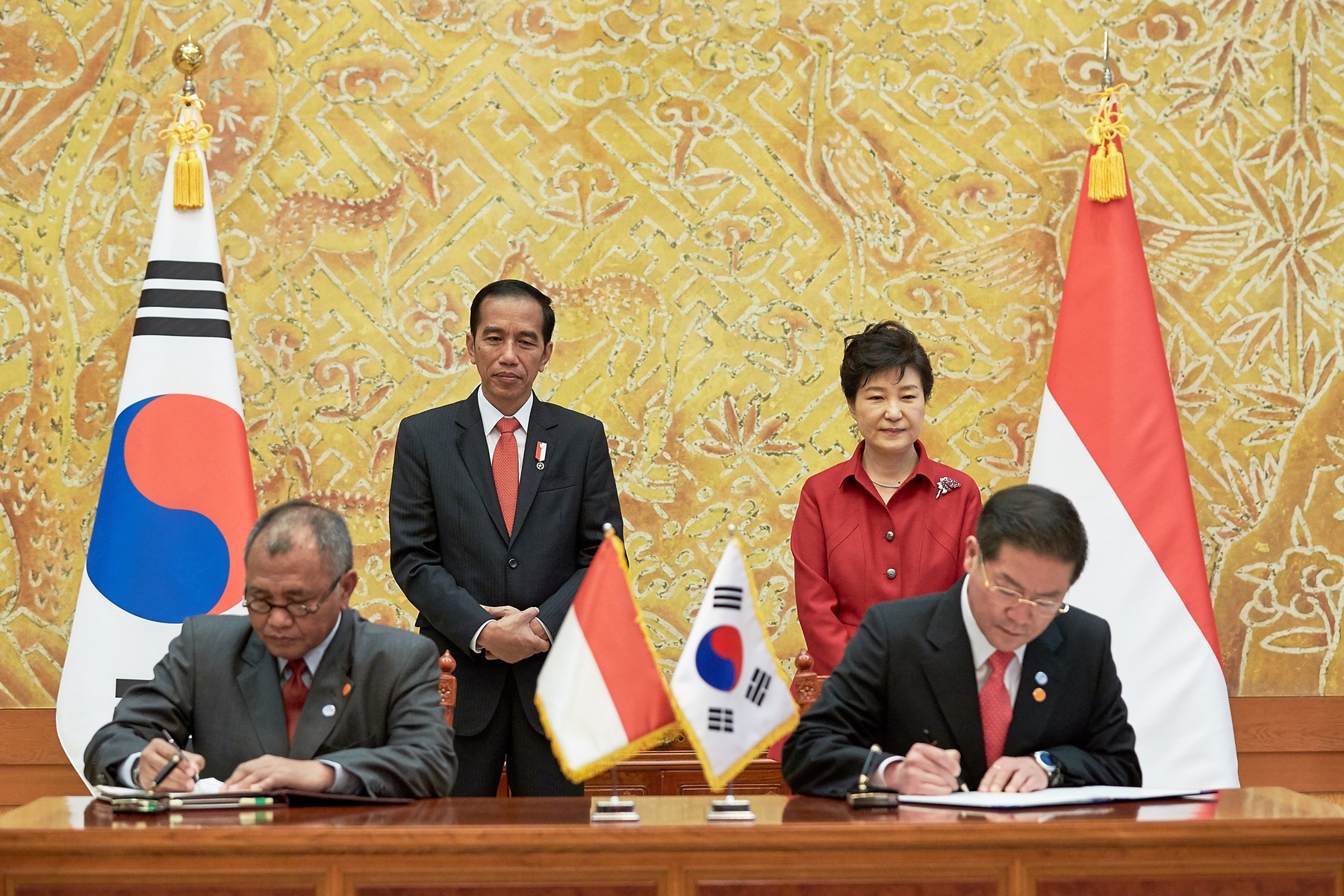Korea and Indonesia step up anti-corruption cooperation
- Date2016-05-16
- Hit5,232
| The Anti-Corruption and Civil Rights Commission (ACRC) announced that it would strengthen anti-corruption cooperation with the Indonesian government, so that the Integrity Assessment, Corruption Impact Assessment, and other anti-corruption policies of Korea can be successfully adapted to the local context of Indonesia. The ACRC extended the Memorandum of Understanding on Mutual Cooperation in Combating Corruption, concluded in 2006 with Indonesia's Corruption Eradication Commission (KPK), in order to enhance cooperation in sharing of policies, experience, and best practices, technical assistance, joint research, training, and bilateral symposium related to the prevention and eradication of corruption, for the next two years. |  |
As a result of active cooperation after the conclusion of the first bilateral anti-corruption MoU in 2006, the Integrity Assessment, Corruption Impact Assessment, and other anti-corruption policies of Korea were successfully introduced to Indonesia.
The Integrity Assessment evaluates integrity levels of public organizations by conducting surveys of citizens, businessmen, public officials, and experts. The assessment system won the 2012 UN Public Service Awards in the category of Preventing and Combating Corruption in the Public Service, and is recognized as one of the best anti-corruption measures of Korea.
Indonesia has conducted the Integrity Assessment since 2007. Each year, the assessment is conducted on central administrative agencies and local governments. The results are reflected in the Indonesian government's administration reform index and national mid-term development index.
The Corruption Impact Assessment, which recommends institutional improvement after systematically analyzing and reviewing corruption-prone factors within bills and existing laws, has been implemented in Korea since 2006.
The ACRC will provide related materials and consulting service on the Integrity Assessment, Corruption Impact Assessment, and other policies to its Indonesian counterpart to more effectively contribute to improving Indonesia's integrity.
At the same time, the ACRC will come up with anti-corruption training programs tailored to Indonesia. Also, the ACRC and the Indonesian government will make concerted efforts to take the lead in international cooperation to fight against corruption, especially in implementing the United Nations Convention against Corruption and G20 Anti-Corruption Action Plan.
As Indonesia is the 10th largest economy of the world in terms of GDP, and the 13th largest trading partner and 8th largest investment destination of Korea, many Korean companies are currently doing business in Indonesia. Therefore, efforts to eradicate corruption in Indonesia are expected to improve trade and investment environments for Korean businesses in the long run.
Chairman Sung Yung-hoon of the ACRC said, "We will continue to share Korea's anti-corruption policies and best practices with the world, focusing on Indonesia, one of the leading members of the Association of South East Asian Nations (ASEAN)."









